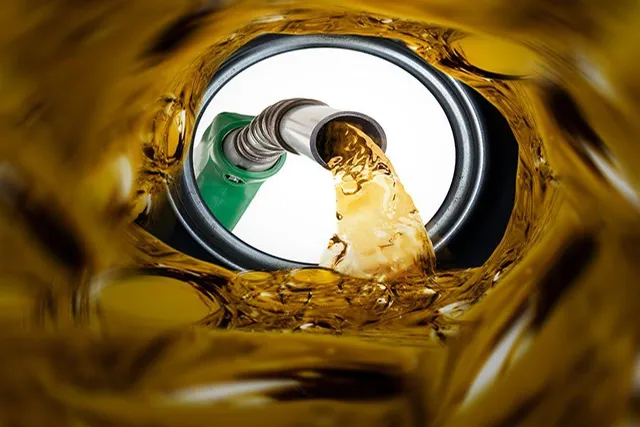The Federal Government has come under intense criticism following its recent announcement of a proposed five percent tax on every 10 litres of fuel purchased by Nigerians — a move many see as a fresh economic burden amid soaring living costs.
The Minister of Finance and Coordinating Minister of the Economy, Wale Edun, disclosed the proposal in Abuja last week, clarifying that the levy is not a new tax but a provision under the Federal Road Maintenance Agency (FERMA) Act of 2007.
According to Edun, the inclusion of the surcharge in the draft 2025 Nigeria Tax Administration Act is intended for harmonisation and transparency, and not for immediate implementation.
“The five percent surcharge has existed since 2007. Its inclusion in the new law is merely for harmonisation and transparency. There is no immediate plan to implement any surcharge, and as of today, no commencement order has been issued or is being prepared,” he stated.
Despite these assurances, the proposed tax has ignited widespread anger and debate among citizens, who are already grappling with severe economic pressures following the removal of fuel subsidies in 2023.
Pump prices of petrol have skyrocketed from ₦167 per litre to between ₦865 and ₦1,000 in various parts of the country, significantly increasing the cost of living and transportation.
READ ALSO: Peter Obi criticises 5% fuel tax, says FG imposing more burden on Nigerians
Public outcry
Many Nigerians, especially on social media, have rejected the idea, describing it as “insensitive” and “oppressive.”
Speaking to reporters in Lagos, Taiwo Oladosun, a real estate agent, said the policy would further impoverish citizens.
“The issue of taxing individuals five percent for purchasing fuel is wrong. Not everybody can afford that, considering the current situation,” he said.
Johnson Olagunji, a resident, added that if the tax is implemented, fuel stations must be monitored for transparency.
“One litre should be one litre. Many times, when we buy fuel, what we get is less than what we pay for. The government should set up a monitoring team to ensure fairness,” he said.
Daily commuter and businessman, Gabriel Adigun, expressed fears about the knock-on effects on transport costs.
“I transport daily. This tax will hit people like me the hardest. We already operate on tight budgets, and this just adds more pressure,” he lamented.
An Okada rider, Ozo Darlington, criticised the government’s insensitivity.
“Must they still go ahead to make things difficult for us? With time, we might even be asked to pay tax for the air we breathe,” he quipped.
Fuel attendants also expressed concerns. Kikelomo Oluwatosin noted that price hikes already attract regular complaints.
“We follow directives, but people are already complaining. Implementing this tax will definitely cause more,” she said.
Her colleague, Kingsley Ibe, said citizens are tired of paying more without seeing any benefits.
“If there would be tax for everything, let us at least see where the money is going. Nigerians keep paying, but nothing improves.”
Labour unions, opposition react
Organised labour, manufacturers, and political figures have joined the chorus of criticism. The Nigeria Labour Congress (NLC), Trade Union Congress (TUC), and the Manufacturers Association of Nigeria have all condemned the proposal.
Peter Obi, the 2023 presidential candidate of the Labour Party, also rejected the idea in a post on X (formerly Twitter).
“Nigerians will pay a five percent tax when buying their everyday fuel or diesel at a time when millions can hardly even afford transportation,” Obi wrote.
“Mr. President just yesterday boasted that Nigeria has met its revenue target for the year. Yet, instead of easing hardship, the government imposes more burden on Nigerians.”
He pointed out that even the government’s proposed alternative to petrol — Compressed Natural Gas (CNG) — has become unaffordable, rising from ₦230 to ₦450 per kg, while the promised subsidy on it has not materialised.
Obi called for the suspension of the policy until Nigerians begin to see tangible improvements in their lives.
“This five percent fuel tax should wait. Leadership is not about giving a burden — it is about reducing suffering,” he said.
Background
The FERMA Act, passed in 2007, contains a provision for a five percent fuel surcharge to fund road maintenance. However, successive governments have not enforced the levy due to its potentially regressive impact.
Critics say reviving the clause now, at a time when inflation is at a record high and disposable incomes are shrinking, signals the government’s disconnect from public suffering.
As of now, there is no confirmed date for the implementation of the tax, and the government insists it is only in the legislative review stage. Nonetheless, Nigerians remain sceptical, fearing that the policy may be quietly introduced without adequate consultation or mitigation measures.



